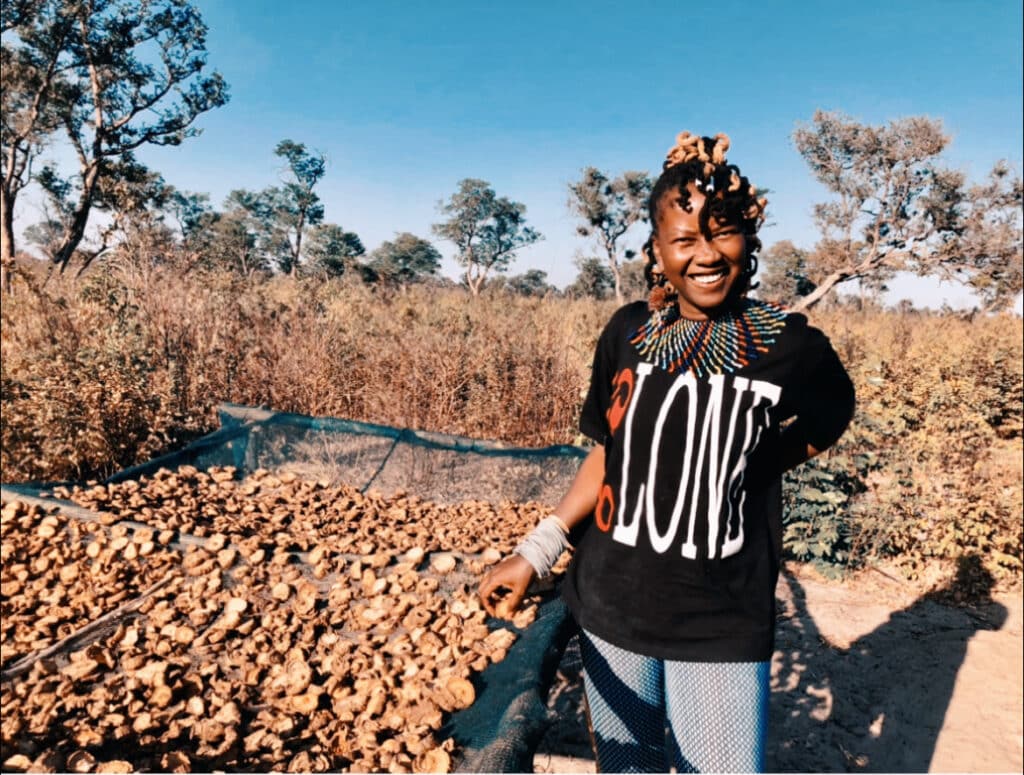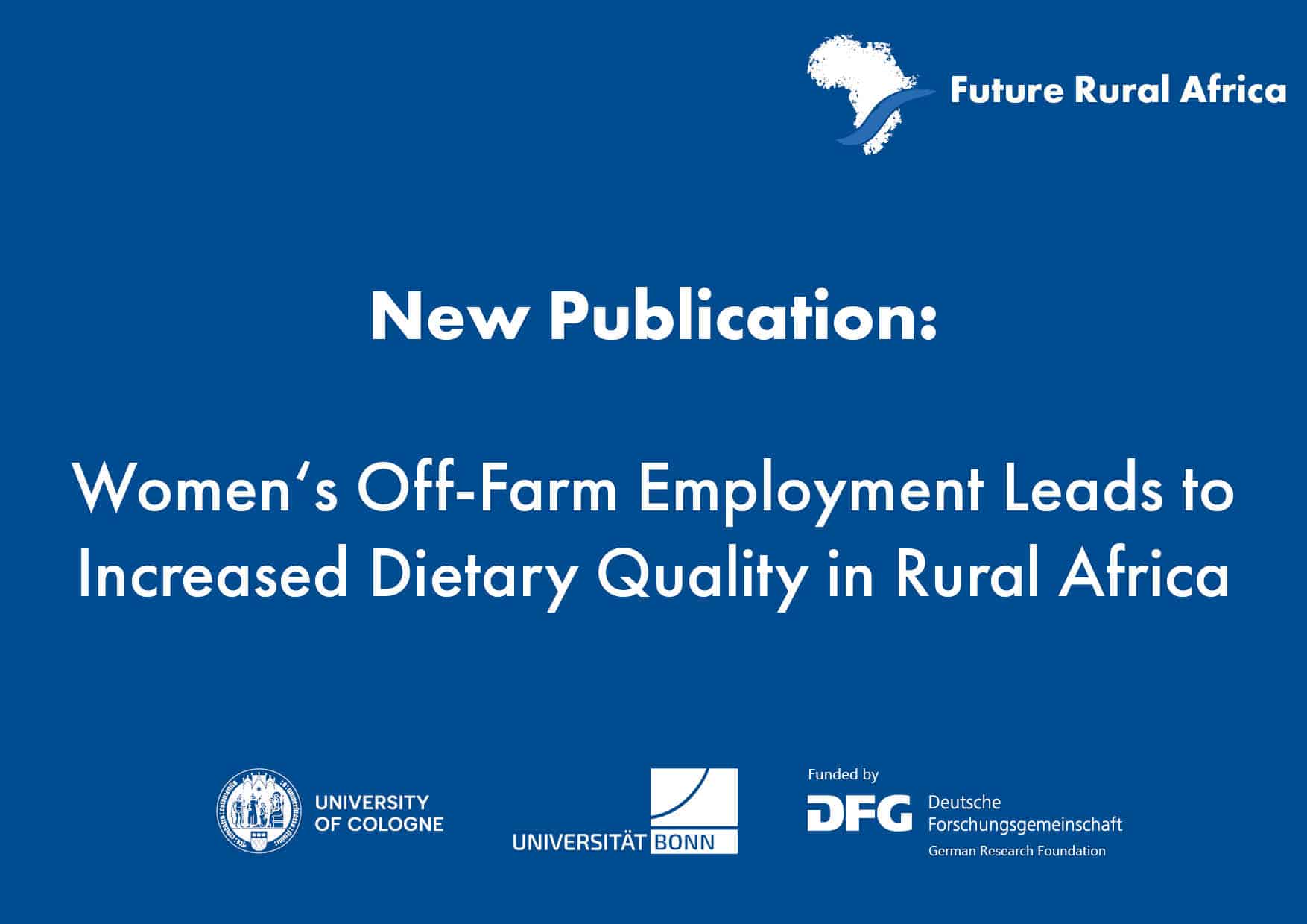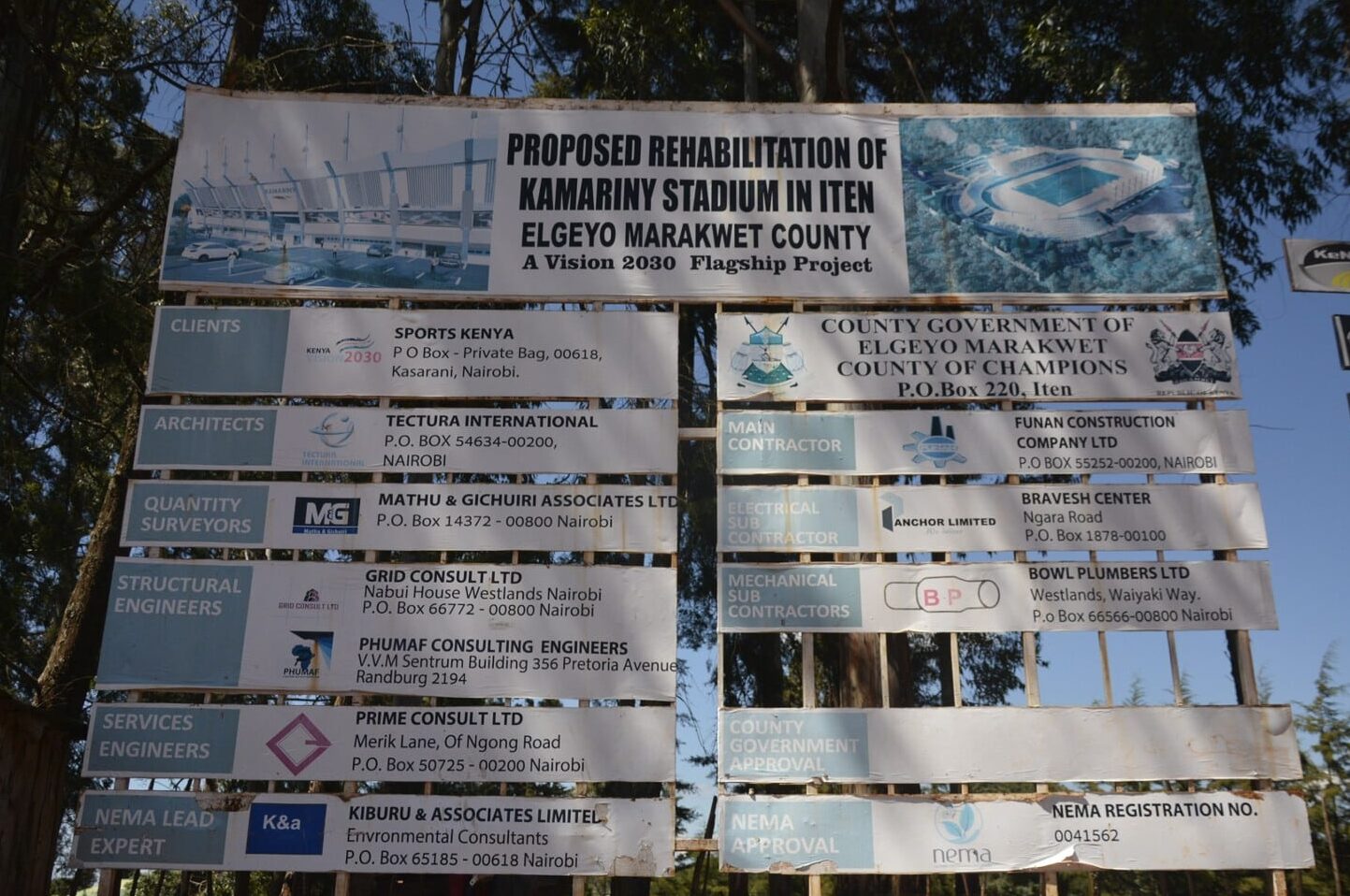Future Rural Africa researcher Ndapewa Fenny Nakanyete (Project C01 Future in Chains) successfully defended her PhD thesis recently. Her degree was jointly supervised and collaboratively structured by the University of Cologne and University of Namibia (UNAM):
Congratulations on finalizing your PhD! Could you briefly describe your research project and how it is linked to your sub-project in the Collaborative Research Centre TRR Future Rural Africa?
My research focused on the commercialization of non-timber forest products (NTFPs) and its impact on indigenous communities in northern Namibia, particularly the Khwe and !Xun San people in Bwabwata National Park and Okongo, including community forests. Although NTFPs have the potential to enhance livelihoods, the current system primarily benefits people of European descent in Namibia and companies in the Global North (especially in France and Germany), leaving indigenous producers with minimal compensation. My research evaluates how effectively indigenous NTFP producers and their traditional knowledge are integrated into global and regional value chains, and whether international legislation helps improve their economic benefits.

Using various methods such as interviews, focus groups, observations, and data analysis, I assessed the impact of NTFP commercialization on the San harvesters’ livelihoods and explored the roles of legislation aimed at ensuring fair benefit-sharing. The findings show significant income disparities and limited benefit-sharing agreements with multinational companies, resulting in exploitation and challenges for the San communities in establishing local processing facilities and community enterprises. The study highlights the need for legal reforms to ensure fair benefit-sharing and better value capture for indigenous communities.
My PhD was affiliated with the Collaborative Research Centre Future Rural Africa Project C01 – Future in Chains. My research project focused on cross-border value chain analysis, tracing the journey of non-timber forest commodities from harvesters in Bwabwata National Park, part of KAZA, to multinational companies in Germany and France. This aligned with the CO1 Project’s vision of socio-ecological transformation in rural-urban and cross-border relations, emphasizing the importance of value-chain and corridor activities. Through this affiliation, I received fieldwork funding support for my data collection from the DFG, facilitated by my main supervisor, Prof. Javier Revilla Diez, who also facilitated my DAAD scholarship for my two-year research stay at the University of Cologne.
You completed a cotutelle PhD between the UoC and UNAM. Could you explain what this is and how it is different from a “regular” PhD? What are the advantages of attaining such a “dual” PhD?
I first enrolled in my PhD studies at the University of Namibia (UNAM) under the supervision of Prof. Revilla Diez and Prof. Kenneth Matengu. During my initial two years at UNAM, I developed and defended my proposal, conducted a comprehensive literature review, and obtained ethical clearance. Subsequently, I received the DAAD Research Grants – Bi-nationally Supervised Doctoral Degrees/Cotutelle, which enabled me to move to the University of Cologne (UoC) for the next two years. There, I focused on writing my PhD articles and finalizing my dissertation.
The “dual” PhD program is distinct from a regular PhD due to its joint supervision and collaborative structure. From the outset, my research involved both UNAM and UoC, with professors from both institutions providing guidance to meet the academic requirements of each university. This collaboration reflects the shared intellectual effort and ethical commitment to academic structures. It ensures that the research is recognized and valued by both institutions, resulting in a degree that acknowledges the significant contributions of each university.
Such a degree is different from a regular PhD because it embodies a form of decolonization, particularly relevant to my research, which evaluates post-colonial structures. Many African and Global South students graduate from Global North universities while conducting research in their home countries, often leaving the intellectual property rights of their theses inaccessible to scholars in their home countries. Pursuing a dual PhD sought to address this issue, ensuring that my work is accessible and beneficial to both Namibian and international communities.
Could you briefly describe the process of defending your thesis? What was that process like for you?
Defending my PhD was a unique and multifaceted experience due to the involvement of two institutions with different processes. To accommodate this, the universities agreed on an exceptional procedure, resulting in a defense committee that included four examiners from four universities: Prof. Dr. Mark Vicol (University of Wageningen), Prof. Dr. Peter Dannenberg (University of Cologne), Prof. Dr. Saka Jimoh (University of Ibadan), and Prof. Dr. Daniel Schiller (University of Greifswald). The chairperson was Prof. Dr. Sandro Jahn (University of Cologne), and my supervisors, Prof. Dr. Javier Revilla Diez (University of Cologne) and Prof. Dr. Kenneth Matengu (University of Namibia), participated as advisory members.
My defense was a hybrid event, with over 70 people attending online and a few more in person. While the process was overwhelming—especially since I had submitted my thesis at the end of October but could only defend in June due to procedural differences—it was also incredibly motivating. Having five reviewers examine my thesis and four examiners at my defense was challenging, but it presented an international platform to showcase my work. I am honored that the examiners found my research compelling enough to award me a Magna Cum Laude. This experience not only tested my determination but also provided a valuable opportunity to present my findings to a global audience.






